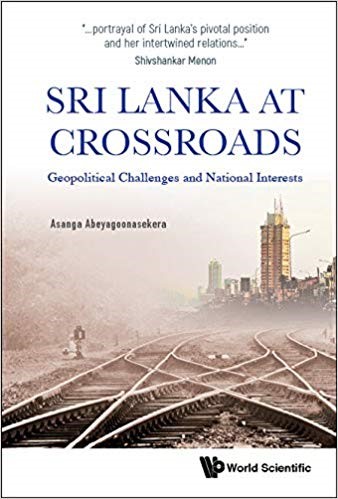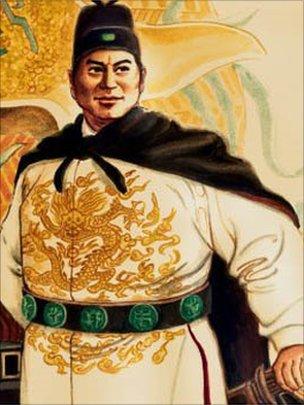
ISBN-13: 978-9813276727 ISBN-10: 981327672X
Publisher – World Scientific
200 pages soft cover
Unlike other great Island nations like the United Kingdom and Japan, Sri Lanka occupies a unique position as a super connector in fast developing Asia. In the ancient world known as Taprobane, under the name of the “land of the Antichthones,” was long looked upon as another world. The name was entirely unknown in Europe before the time Alexander the Great invaded India in 327 BC.
Throughout centuries that included a colonial rule as recently as 70 years ago, Sri Lanka had to carve out a place for itself in the international arena. Bruised by a colonial era and 30 years of civil war and other insurrections Sri Lanka is looking forward to healing and unification of mind and souls of all the inhabitants in this critically located island in the Indian Ocean.

three blindmen photography Antiquarian map. Ancienne Isle Taprobane
This book examines how Sri Lanka is negotiating its international reach and the spheres of influence from other Asian and world powers to nation-building after many years of turmoil and riots to reconciliation to more robust governance.
Segmented in six chapters, the book starts with Geopolitics to Political Landscape, Foreign Relations, Peace Building and Reconciliation, Democracy and Institution building and finally concluding with Cyber Security and foresight. In all, this a handbook comprising of well-researched articles and essays that is essential reading for the political scientists as well as the Asian leaders that want to build their foothold in this super connector Island nation.
Sri Lanka’s geographical position can be a boon if the nation’s leaders tread a careful path avoiding pitfalls. Foreign relations with the South Asian countries and the emerging power China is crucial in balancing the “see-saw” that should not tip in one side. In that regard, the Sri Lankan leaders must carefully tread the thin rope without losing balance that could result in a devastating result.
In this book Asanga Abeyagoonasekera explains the right course with his in-depth knowledge of the nation, allowing the reader to understand Sri Lanka in perspective. He rightly points out the center of gravity of the world order is shifting from the west to east, and the Chinese concept of the Maritime Silk Road (MSR) has taken a foothold in the region whereby Sri Lanka’s position as the “super-connector” is unique. MSR is a part of the One Belt, One Road (OBOR) that signifies the awakening of the sleeping giant from the ancient past to create a new Asian World Order.

Livemint… The Maritime Silk Road, the sea-based component of the Belt and Road Initiative
The Yongle Emperor named Zheng as his Chief Envoy and instructed him to put together a fleet and explore the world. He served three different emperors: his first six missions were under the Yongle Emperor, he was a military commander under the Hongxi Emperor, and made his final mission under the Xuande Emperor. As if his dreams are continuing with the Maritime Silk Road under the command of the present rulers of China.

He has credited Sri Lankan President Sirisena in enacting a balancing act for Sri Lanka and creating equidistant foreign relations with the U.S., India, and China. Asanga pointed to several challenges for the President. The bi-partisan political model designed by the President and the Prime Minister from two different political establishments is still in the infancy, and it has to mature to reap the benefits. The poverty rate is another target that the leaders must deal with. President Sirisena declared 2017 as the year to eradicate poverty. Sirisena spelled out his foreign policy as “Asia centric balanced,” and in this regard, he has re-calibrated and achieved a balance between the West and East during the short period he has been in the office.
World Economic Forum reported Sri Lankan economy is transitioning from being factor driven to efficiency driven. Although a portion of the population lives a first world life, Sri Lankan poverty rate is high. With the present economic climate, Asanga Abeyagoonasekera predicts the target GDP per capita of $ 5,500 by the year 2020 as unachievable. He would like it to the other Island nation Singapore whose GDP per capita income is above $ 50,000 – how long will Sri Lanka take to reach that level? The author is estimating the income growth to $ 22,000 per capita will make Sri Lanka to 2040 with the present growth rate.
Asanga put forward his thoughts as Sri Lankan academic and the head of the national security think tank. This book offers insights into how the country has addressed its post-conflict as well as geopolitical challenges, navigated through domestic politics, and ramped up peace-building efforts, to now reaching a junction where it can put its foot firmly on the road to prosperity in the new Asian world order. He is the Director General of the National Security Think Tank, the Institute of National Security Studies Sri Lanka (INSSSL) under the Ministry of Defence. He is a visiting professor for Geopolitics (Northern Kentucky University), International Security (University of Colombo) and International Political Economy (University of London RIC). Asanga is a Columnist for IPCS and the South Asia Journal. He contributes articles on geopolitics and regional security. He has authored many academic journal articles and presented in Defence; Foreign Policy think tanks, Universities and Government Ministries including Quai d’ Orsay in Paris, LKY School of Public Policy in Singapore, Jesus College Cambridge University. His primary field of interest is geopolitics of South Asia, Indian Ocean Region and regional security in South Asia.
He has 13 years of experience at the Government Administration sector. He was the former Executive Director of the Government think tank on Foreign Policy, the Lakshman Kadirgamar Institute for International Relations and Strategic Studies and was the Advisor to Minister of External Affairs from 2012-2015. At the same time, he was the Director General of Bandaranayake International Diplomatic Training Institute (BIDTI), Government diplomatic training institute.
He was educated at Harvard Kennedy School, Jackson Institute for Global Affairs at Yale University, Lee Kuan Yew School of Public Policy (Singapore), ECU Perth (Western Australia), University of Oxford (England). Asanga is an Alumnus of the US State Department International Visitors Leadership Program(IVLP), National Defense University in Washington and APCSS (Hawaii). He was recognized as a Young Global Leader (YGL) for the World Economic Forum in 2012. His 2015 published book “Towards a better world order” focus geopolitics of the region and importance of preserving Sri Lanka’s democratic institutions. In 2016, he authored a chapter “The Modi Doctrine: New Paradigms in India’s Foreign Policy.”
